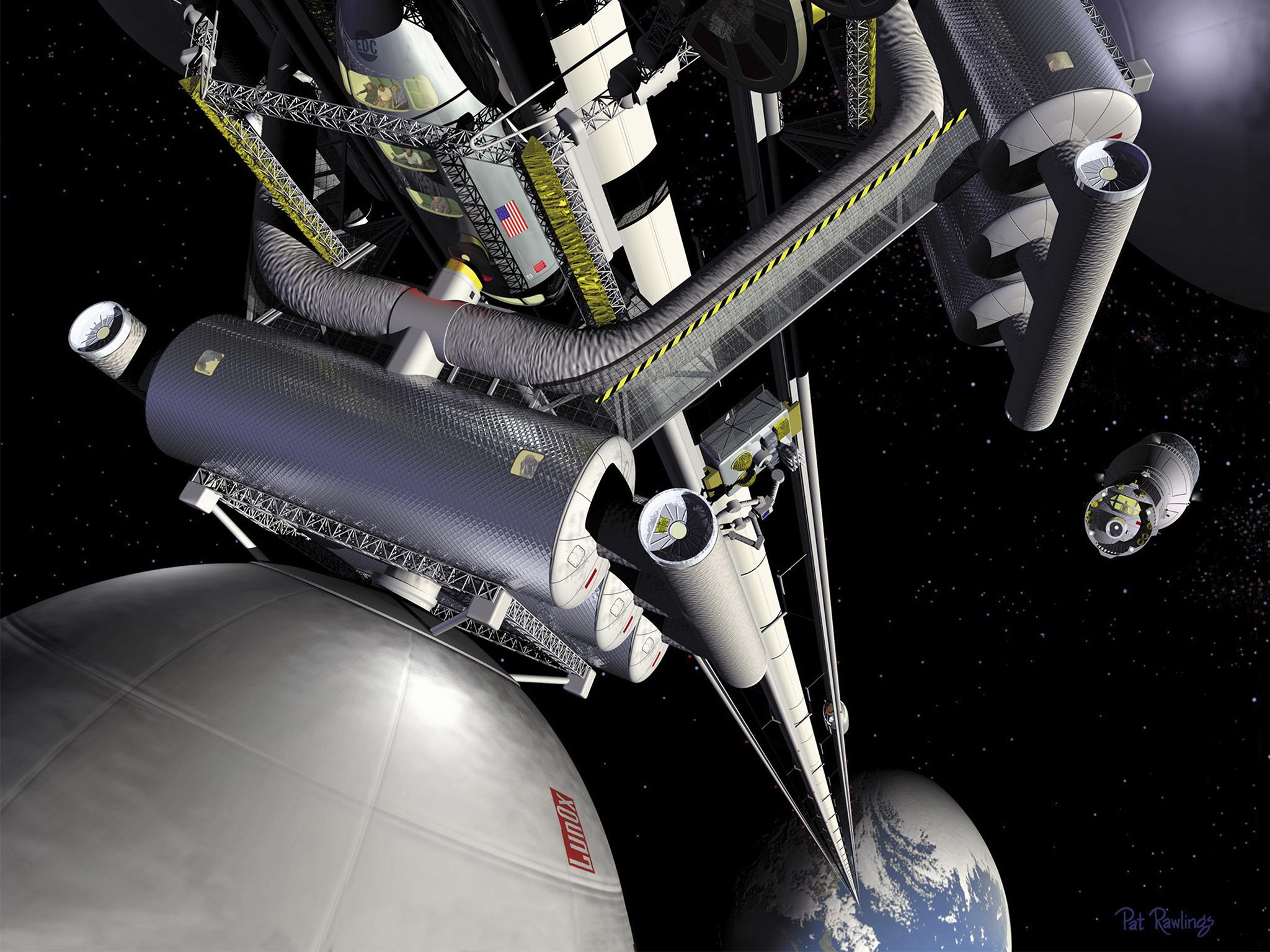Going up? How the century-old idea of a ‘space elevator’ could become reality
It was first pondered as early as 1895 and has been a science fiction trope ever since. But, Steven Cutts asks, just how close are we to constructing a ladder to the heavens?

There are some technologies that seem so well established that it’s hard to imagine how they could ever be overcome. Almost all our plans to conquer outer space are based on rockets and it’s our failure to improve them, more than anything else, that has left us confined to the surface of this planet.
But what if we didn’t really need rockets? What if engineers could build an entirely different means of gaining access to the heavens? What if, for example, we could build a simple elevator that takes off from the surface of the planet directly upwards, all the way into Earth’s orbit. Without rocket thrust, without exhaust gases and without sound.
The first suggestion that a single tower might give us access to space came from the visionary Russian space pioneer Konstantin Tsiolkovsky in 1895. Incredibly, Tsiolkovsky was studying the possibility of space colonisation 10 years before the Wright Brothers had even managed to get airborne at Kitty Hawk. Inspired by the recently constructed Eiffel Tower, he suggested that it might be possible to build a tower 35,000 kilometres (or 22,236 miles) high and use the summit as a permanent space station and gateway to the rest of the universe.
Subscribe to Independent Premium to bookmark this article
Want to bookmark your favourite articles and stories to read or reference later? Start your Independent Premium subscription today.
Join our commenting forum
Join thought-provoking conversations, follow other Independent readers and see their replies